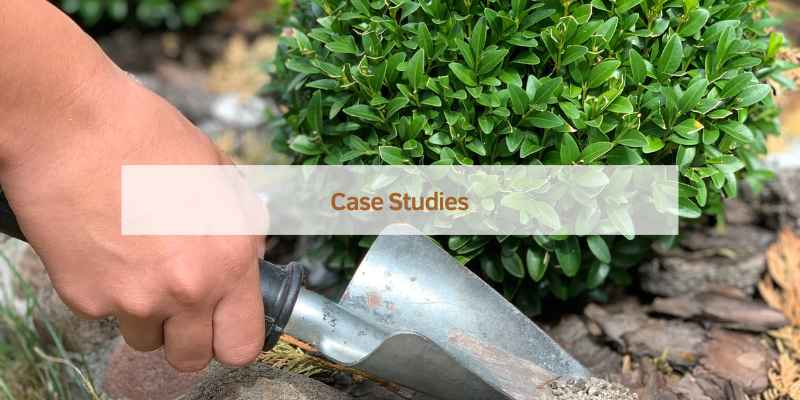Wood ash can be a valuable fertilizer, providing essential nutrients like potassium and calcium. It helps improve soil pH and structure.
Wood ash, a byproduct of burning wood, is rich in essential nutrients beneficial for plant growth. It contains potassium, calcium, and trace minerals, making it an effective soil amendment. Gardeners and farmers use wood ash to raise soil pH, especially in acidic soils, thus enhancing nutrient availability.
Applying wood ash improves soil structure and promotes healthier plant roots. However, moderation is key, as excessive use can lead to nutrient imbalances. Always test soil pH before application to ensure optimal results. Properly utilized, wood ash can enhance garden productivity and soil health, making it a sustainable choice for organic farming.
The Secret In The Hearth
Wood ash has been used for centuries in farming. Farmers spread it on their fields. It helped plants grow stronger. People also used it in their gardens. They noticed better plant growth. This practice was common in many cultures. They knew it made the soil richer.
Wood ash contains many important nutrients. It has potassium and calcium. These help plants grow. There is also magnesium and phosphorus. These are vital for plant health. Wood ash also has trace elements. These include iron and zinc. All these nutrients make it a good fertilizer.

From Fireplace To Food
Wood ash can be a great fertilizer. It contains important nutrients for plants. These nutrients include calcium, potassium, and magnesium. Using wood ash helps recycle waste from your fireplace. This is good for the environment. It also saves money on buying fertilizers.
Always test your soil before adding wood ash. This makes sure you do not add too much. Too much ash can harm plants. Only use wood ash from clean wood. Avoid ash from painted or treated wood. These types can be toxic.
Wear gloves when handling wood ash. It can be irritating to the skin. Avoid breathing in the ash dust. It can cause respiratory problems. Always store ash in a metal container. This prevents accidental fires.
Keep wood ash away from children and pets. They might touch or eat it. This can be dangerous. Do not use wood ash on plants that prefer acidic soil. It can make the soil too alkaline.
Nurturing Your Soil
Wood ash helps balance soil pH. It can make soil less acidic. This is important for many plants. They grow better in neutral soil. Always test soil before adding ash. Too much ash can harm plants. Use ash in small amounts. Spread it evenly over the soil. Mix it well into the top layer.
Wood ash provides important nutrients. It is rich in potassium. Potassium helps plants grow strong. Ash also contains calcium. Calcium is good for root growth. There is some phosphorus in ash too. Phosphorus helps plants flower and fruit. Always use clean ash. Avoid ash from painted or treated wood.
Cultivating Growth
Tomatoes and carrots love wood ash. Ash provides them with essential nutrients. Beans and peas also benefit from ash. They grow stronger and healthier. Potatoes and lettuce can use ash too. It helps them resist disease. Ash makes the soil less acidic. Many vegetables like this condition.
Ash is not good for all plants. Blueberries and raspberries do not like ash. These plants need acidic soil. Rhododendrons and azaleas also dislike ash. They suffer in less acidic soil. Pine trees and oak trees prefer acidic conditions too. Ash can harm them. Always check plant preferences before using ash.
Application Techniques
Wood ash can be a great fertilizer. Use about 10 to 15 pounds of ash for every 1,000 square feet. Spread the ash evenly over the soil. Don’t use too much or it can harm the plants. Apply once a year for best results. You can also test the soil to see if more is needed.
Spring and fall are the best seasons for ash fertilization. In the spring, it helps plants grow strong. In the fall, it prepares the soil for winter. Avoid using ash in the hot summer months. The nutrients might not be as effective. Winter is also not ideal due to snow and ice.
Composting With Ash
Wood ash can be a great addition to compost piles. It helps balance pH levels. Ash provides essential nutrients like potassium and calcium. Spread ash thinly in the pile. Too much ash can harm the compost. Mix well to avoid clumping. Keep ash dry until use.
Ash-enriched compost enhances soil health. It improves soil structure. Plants grow stronger with ash compost. Nutrient-rich compost boosts plant growth. Ash compost is eco-friendly. It recycles waste into useful material. Gardeners love using ash in compost. It makes plants thrive.
Case Studies
Farmers have seen great results using wood ash as fertilizer. Tomato plants grew faster and stronger. Corn fields showed higher yields. Gardeners noticed more blooms in their flowers. Soil quality improved in many cases. Nutrients in the ash helped the plants grow better.
Studies show that wood ash adds important minerals to the soil. Calcium, potassium, and magnesium are common in ash. These minerals help plants grow strong. Soil pH levels also improve with ash use. This makes the soil less acidic. Better soil means healthier plants.

Frequently Asked Questions
Do Wood Ashes Make Good Fertilizer?
Yes, wood ashes make good fertilizer. They provide essential nutrients like potassium and calcium. Use them sparingly to avoid soil alkalinity.
What Plants Don’t Like Wood Ash?
Plants like blueberries, azaleas, rhododendrons, and potatoes dislike wood ash. They prefer acidic soil conditions. Wood ash raises soil pH, harming these acid-loving plants. Avoid using wood ash near them.
What Are The Disadvantages Of Wood Ash In Agriculture?
Wood ash can raise soil pH excessively, harming plants. It may contain heavy metals, leading to soil contamination. High salt levels can damage plant roots.
Are Wood Ashes A Good Source Of Nitrogen?
Wood ashes are not a good source of nitrogen. They are rich in potassium and calcium instead. Use them to improve soil pH.
Conclusion
Research shows wood ash can effectively enrich soil. Its nutrients boost plant growth. Using wood ash as fertilizer is eco-friendly. It recycles waste and reduces chemical use. Always test soil before application. Proper use ensures healthier plants and a greener environment.
Explore wood ash as a sustainable gardening solution today.


